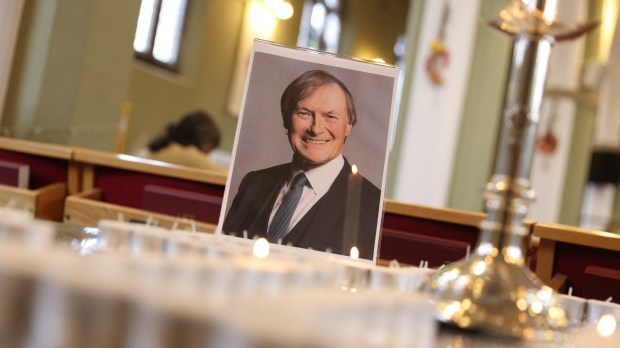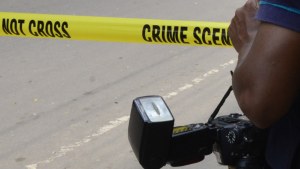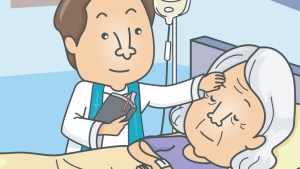Catholic priests in Great Britain may be permitted to approach victims at crime scenes in order to administer the Sacraments, according to new guidelines by a national police board.
The decision follows last fall’s assassination of a Catholic member of the British Parliament and the denial of permission for a priest to approach and give the “Last Rites.”
On October 15, 2021, Sir David Amess, a member of the House of Commons, was assassinated while meeting constituents in a church east of London. Emergency medical personnel tried unsuccessfully to save Amess after a man stabbed him repeatedly.
A local priest, Fr. Jeffrey Woolnough, rushed to Belfairs Methodist Church, where Amess lay dying, but police denied him entry into the building, saying that it was a crime scene. Fr. Woolnough accepted the restriction and prayed the Rosary for Amess outside the church.
Responding to the incident, Bishop Mark Davies of Shrewsbury called for recognition of the sacrament of Anointing as an emergency service, which would have let Fr. Woolnough approach the dying parliamentarian.
“Every Catholic Christian hopes to receive the Sacraments and be accompanied by the prayer of the Church in the final crisis of our lives,” Bishop Davies said. “Every believing Catholic desires to hear Christ’s words of pardon and absolution for the last time; to be strengthened by the grace of anointing; accompanied by the assurance of the Church’s prayer and whenever possible to receive Holy Communion.
“This is something well understood in hospitals and care homes, yet the events following the murderous assault on Sir David Amess suggest this is not always comprehended in emergency situations,” Bishop Davies continued. “I hope a better understanding of the eternal significance of the hour of death for Christians and the Church’s ministry as an ‘emergency service’ may result from this terrible tragedy.”
In addition, Member of Parliament Mike Kane suggested that lawmakers pass an “Amess amendment” guaranteeing priests access to persons in need of spiritual care when in danger of death.
“Catholics believe that extreme unction helps guide the soul to God after death, so maybe we could come up with an Amess amendment so that no matter where it is, in a care home or at a crime scene, Members, or anybody, can receive that sacrament,” Kane said.
Consultation
According to Simon Caldwell, writing in The Tablet, Dame Cressida Dick, Metropolitan Police commissioner, and Cardinal Vincent Nichols of Westminster, president of the Bishops’ Conference of England and Wales, held meetings to work out a solution to the lack of access by priests. The meetings resulted in updated guidelines put out by the British College of Policing.
“The updated guidelines make it clear that police may permit priests to visit crime victims to administer the sacraments,” Caldwell wrote.
It also set outs situations in which such access might be limited, including, for instance, “the need to secure and preserve the crime scene and the material within it.”
Nevertheless, Archbishop John Wilson of Southwark, who represented the Catholic Church in the joint group, expressed satisfaction with the outcome.
“At a critical time, such spiritual and/or family support can make all the difference for those for whom it is important,” he said in a March 31 statement. “For Catholics, this means access by a priest who will be able to offer absolution, anointing and prayers of accompaniment — often referred to as the last rites. We are very grateful for this.”
Ali Harbi Ali, a 26-year-old British Muslim of Somali origin, is accused of the murder and of preparation of acts of terrorism. He denies the charges. A trial was to begin April 4 at the Central Criminal Court in London, but hearings were adjourned for at least four days after the judge tested positive for COVID-19.



